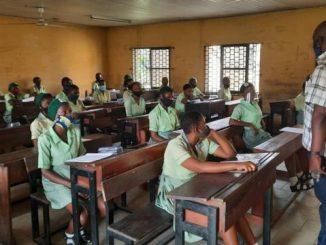
Education is often described as the backbone of every nation’s development, and examinations are a key instrument used to measure knowledge, competence, and preparedness of students for future challenges. In West Africa, one of the most recognized examinations is the West African Senior School Certificate Examination (WASSCE), conducted by the West African Examinations Council (WAEC). This examination serves as a gateway to higher education and employment opportunities, making it highly significant for students. Unfortunately, the rise of a troubling practice known as waec runs has cast a shadow over the integrity of this important system.
Understanding WAEC Runs
The term waec runs is commonly used to describe examination malpractice schemes where students are given access to leaked questions, answers, or other forms of cheating assistance during WAEC exams. These unethical practices are often facilitated by individuals or groups who exploit desperate students and parents seeking easy success. With the advancement of digital technology, many of these so-called “runs” are promoted through social media platforms and websites that claim to provide guaranteed exam solutions.
While some may see waec runs as a shortcut to academic success, the reality is far from it. Beyond the temporary relief it gives to students, it erodes academic standards, undermines personal development, and ultimately damages the credibility of the entire educational system.
The Threat to Academic Integrity
Academic integrity is built on principles of honesty, responsibility, and fairness. When students participate in waec runs, they compromise these principles, creating a culture where dishonesty is normalized. This behavior has several negative consequences:
Devaluation of Certificates
When exam malpractice becomes widespread, certificates lose their credibility. Employers, universities, and international institutions begin to doubt the authenticity of results. A WAEC certificate should represent years of study, discipline, and hard work, but with waec runs becoming common, the value of these certificates is questioned.
Erosion of Trust
Trust is central to education. Teachers trust that students will study and give their best during exams, while students trust that the system will reward merit. When waec runs take root, this trust is broken. Honest students feel cheated when others who did not put in equal effort achieve high scores through illegal means.
Weakening the Educational System
Examination malpractice does not only affect individual students but also weakens the overall educational structure. If teachers and administrators begin to believe that grades do not reflect actual learning, the motivation to teach effectively declines, and the quality of education deteriorates over time.
The Impact on Student Success
While some students may initially view waec runs as a way to secure good grades, in the long run, it often undermines their success in life.
Lack of Knowledge and Skills
Students who rely on waec runs often escape the hard work required to truly understand their subjects. As a result, they graduate without the necessary knowledge or skills to thrive in higher education or professional fields. This creates a dangerous cycle where individuals are certified but incompetent, reducing their ability to compete in a knowledge-driven economy.
Poor Performance in Higher Education
Universities and colleges expect students to come prepared with foundational knowledge from secondary school. When students use waec runs to pass their exams, they enter higher education without the skills needed to cope with complex courses. Many end up struggling, repeating classes, or dropping out altogether.
Reduced Confidence and Self-Worth
Ironically, students who cheat their way through exams often suffer from low confidence. Deep down, they know they did not earn their grades, and this can affect their self-esteem. In professional environments, where real skills are tested, they may feel inadequate and insecure.
Limited Career Opportunities
Employers value integrity and competence. Students who succeed through waec runs may find it difficult to perform in job interviews, skills tests, or on-the-job tasks. Over time, this reduces their chances of career growth and personal development.
The Role of Parents and Society
The demand for waec runs is fueled not only by students but also by societal pressures. Many parents, desperate for their children’s success, sometimes encourage or fund exam malpractice without realizing the long-term damage it causes. In communities where success is measured only by certificates rather than actual knowledge, students feel pressured to cheat rather than study.
Moreover, some sections of society glorify “quick success” over hard work, reinforcing the idea that cutting corners is acceptable. This cultural mindset contributes significantly to the persistence of exam malpractice.
The Responsibility of Educational Authorities
WAEC and other educational authorities have a huge responsibility in curbing waec runs. Over the years, the council has introduced stricter measures such as biometric verification, CCTV monitoring, and digital exam systems to prevent leaks and malpractice. However, the fight is far from over. For true success, continuous reforms, tighter monitoring, and heavy sanctions against offenders are necessary.
Equally important is collaboration with internet service providers and law enforcement agencies to shut down websites and social media accounts that promote waec runs. By making examples of culprits, authorities can send a strong message that exam malpractice will not be tolerated.
The Role of Teachers
Teachers play a vital role in shaping the mindset of students. When teachers emphasize hard work, discipline, and honesty, they inspire students to prepare genuinely for their exams. Teachers who turn a blind eye to malpractice, however, unintentionally encourage dishonesty. Creating a strong academic culture in schools where integrity is rewarded can go a long way in discouraging the demand for waec runs.
Building a Culture of Academic Honesty
Solving the problem of waec runs requires a collective effort from students, parents, schools, and government institutions. Below are some strategies that can help:
- Awareness Campaigns: Educating students on the dangers of exam malpractice and the long-term benefits of honesty.
- Parental Support: Parents must encourage their children to study diligently instead of pressuring them to achieve unrealistic results.
- Motivation and Mentorship: Providing students with role models who achieved success through hard work can inspire them to avoid shortcuts.
- Technology Integration: Leveraging advanced technology to secure examination materials and detect cheating.
- Rewarding Integrity: Celebrating students who perform well without malpractice can set positive examples for others.
Conclusion
The issue of waec runs is not just about passing or failing exams; it is about the future of education, the integrity of certificates, and the success of students in life. When students depend on shortcuts, they undermine their own potential, compromise academic standards, and weaken society as a whole. True success comes not from cheating the system but from dedication, persistence, and honesty.
